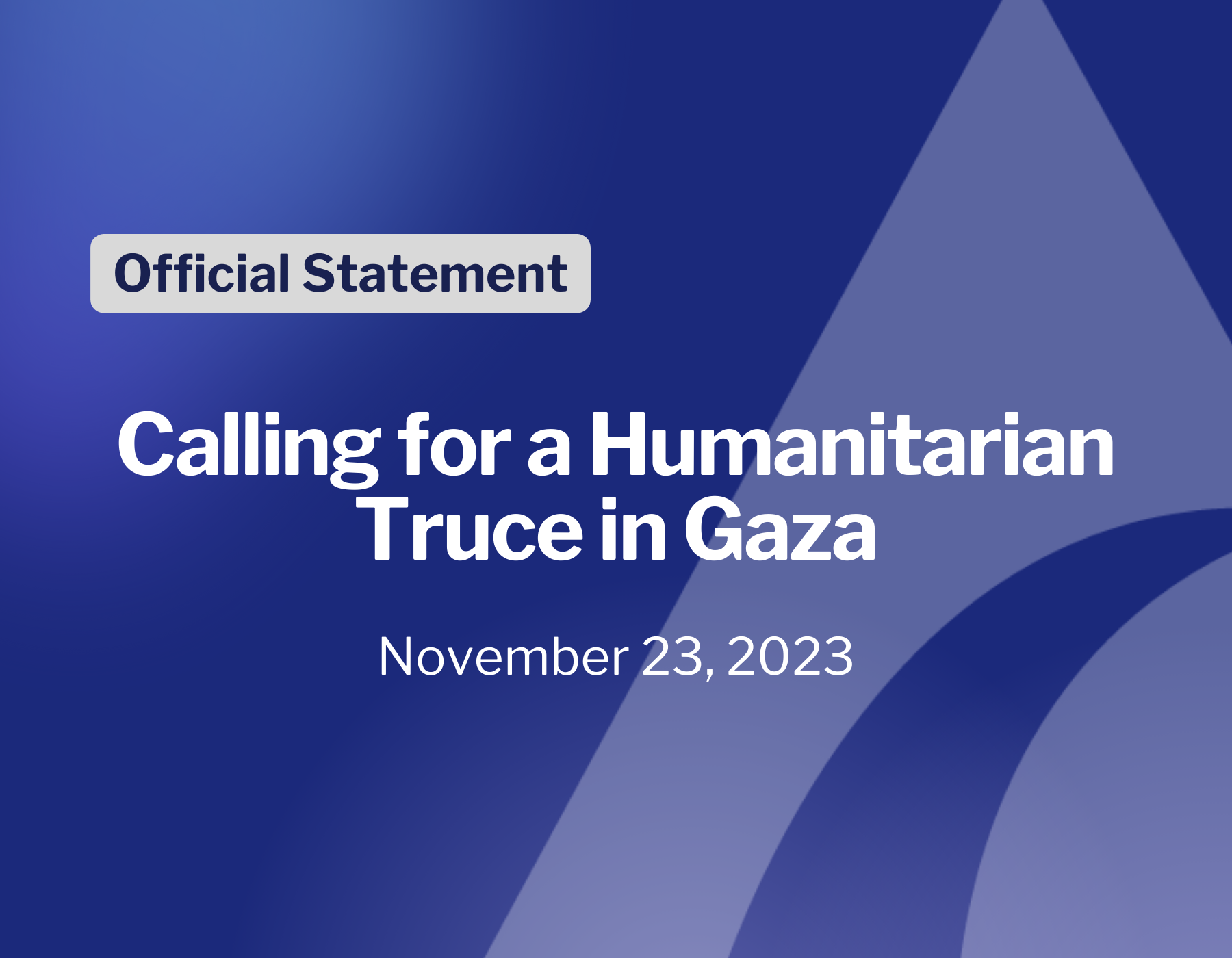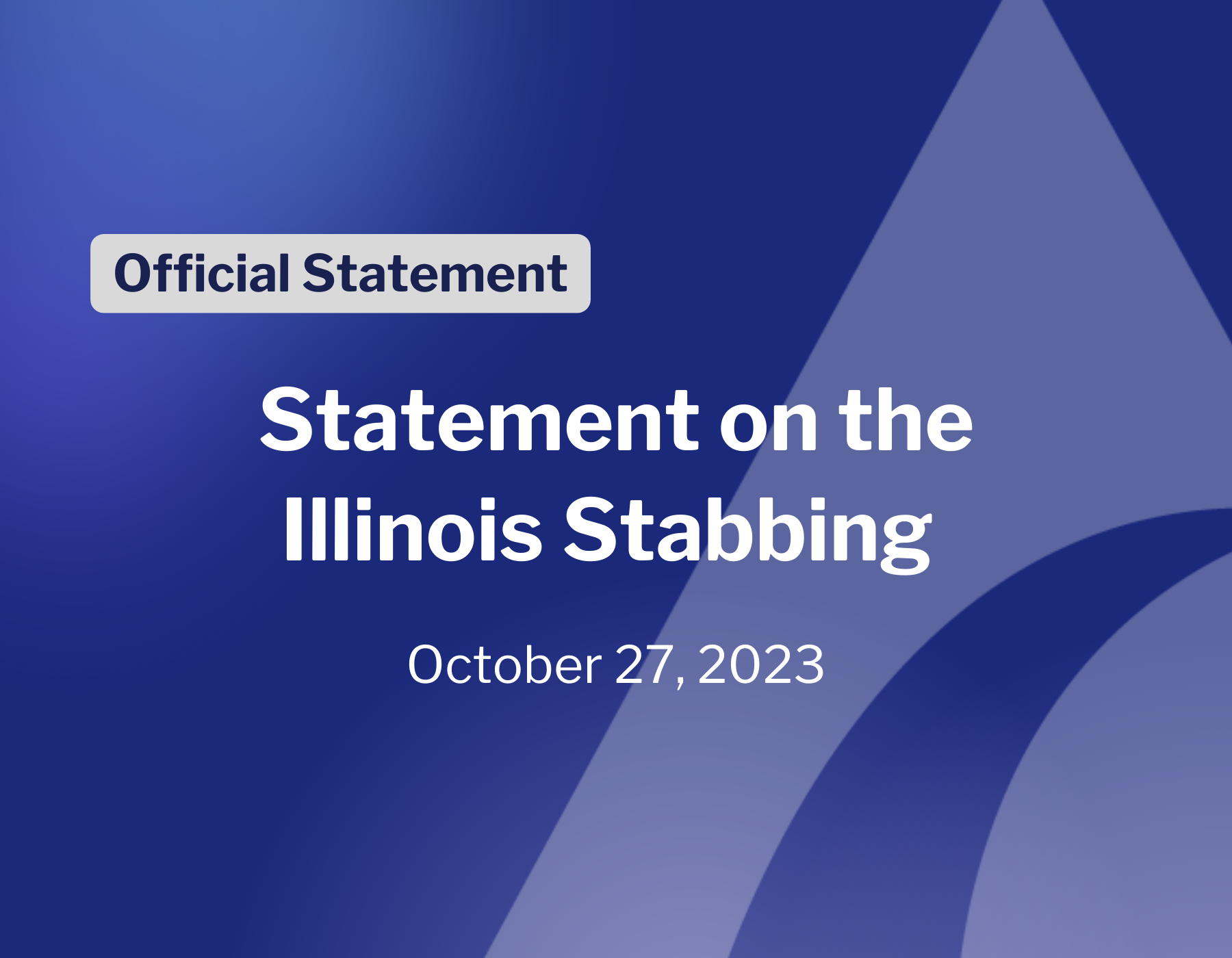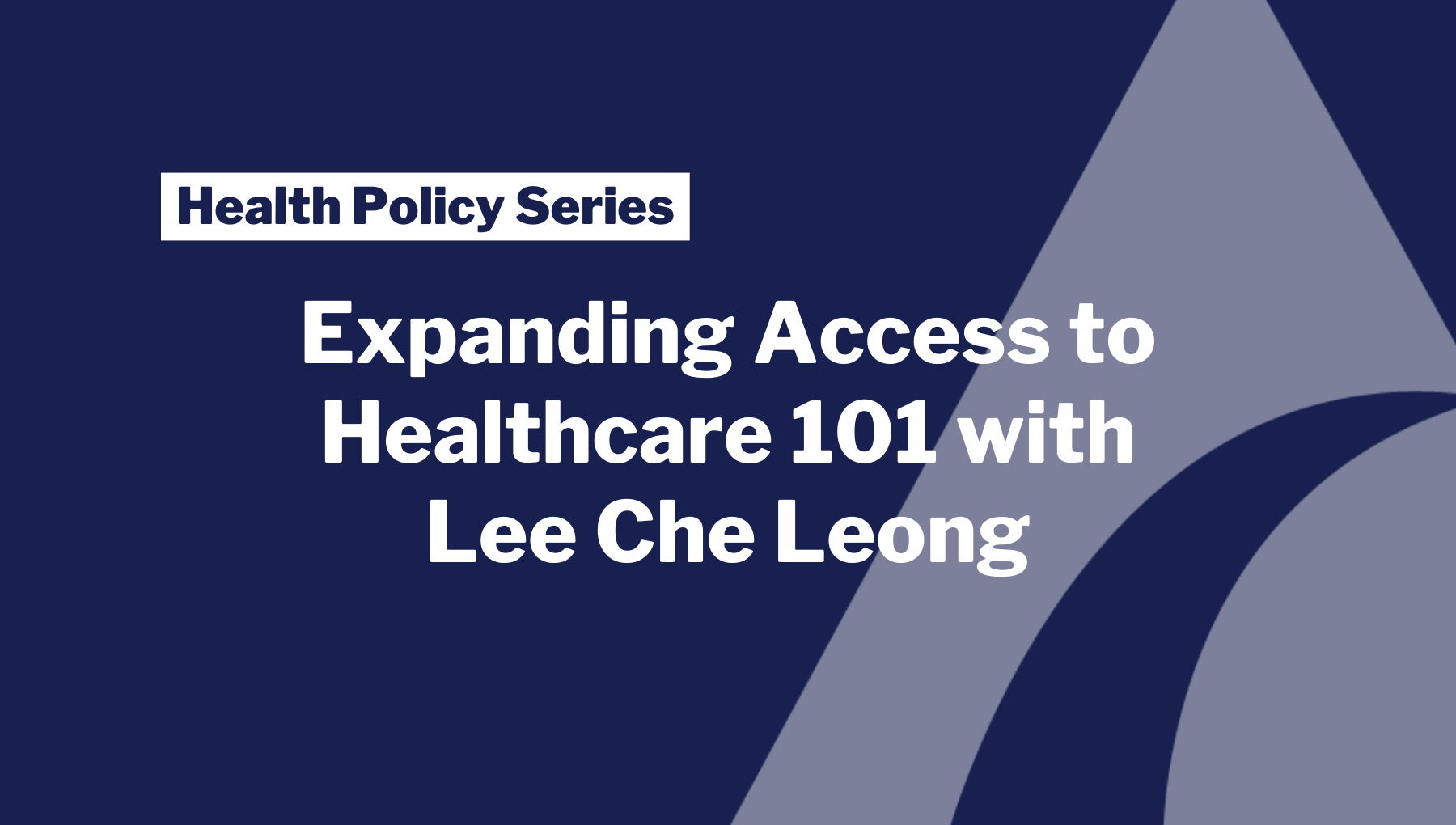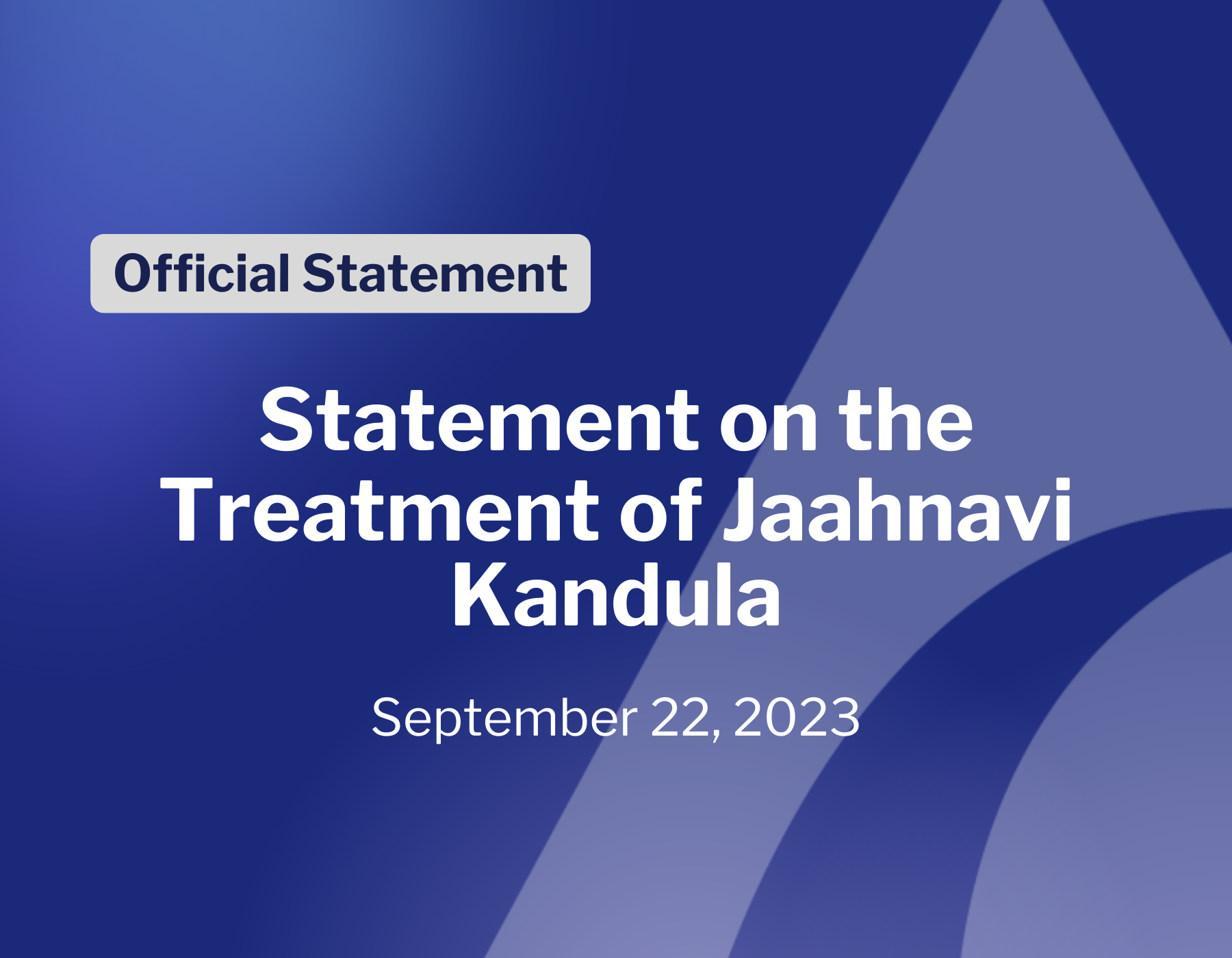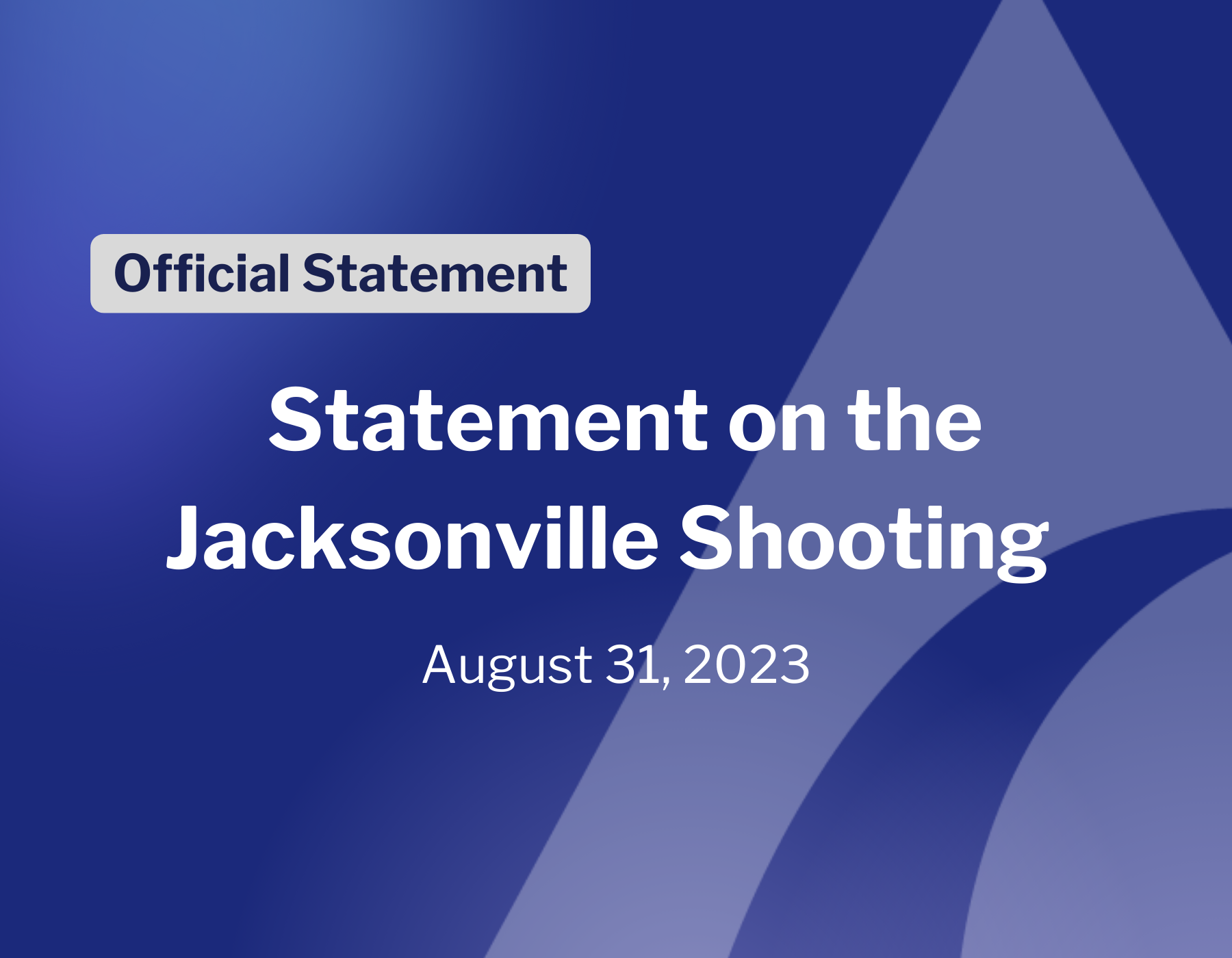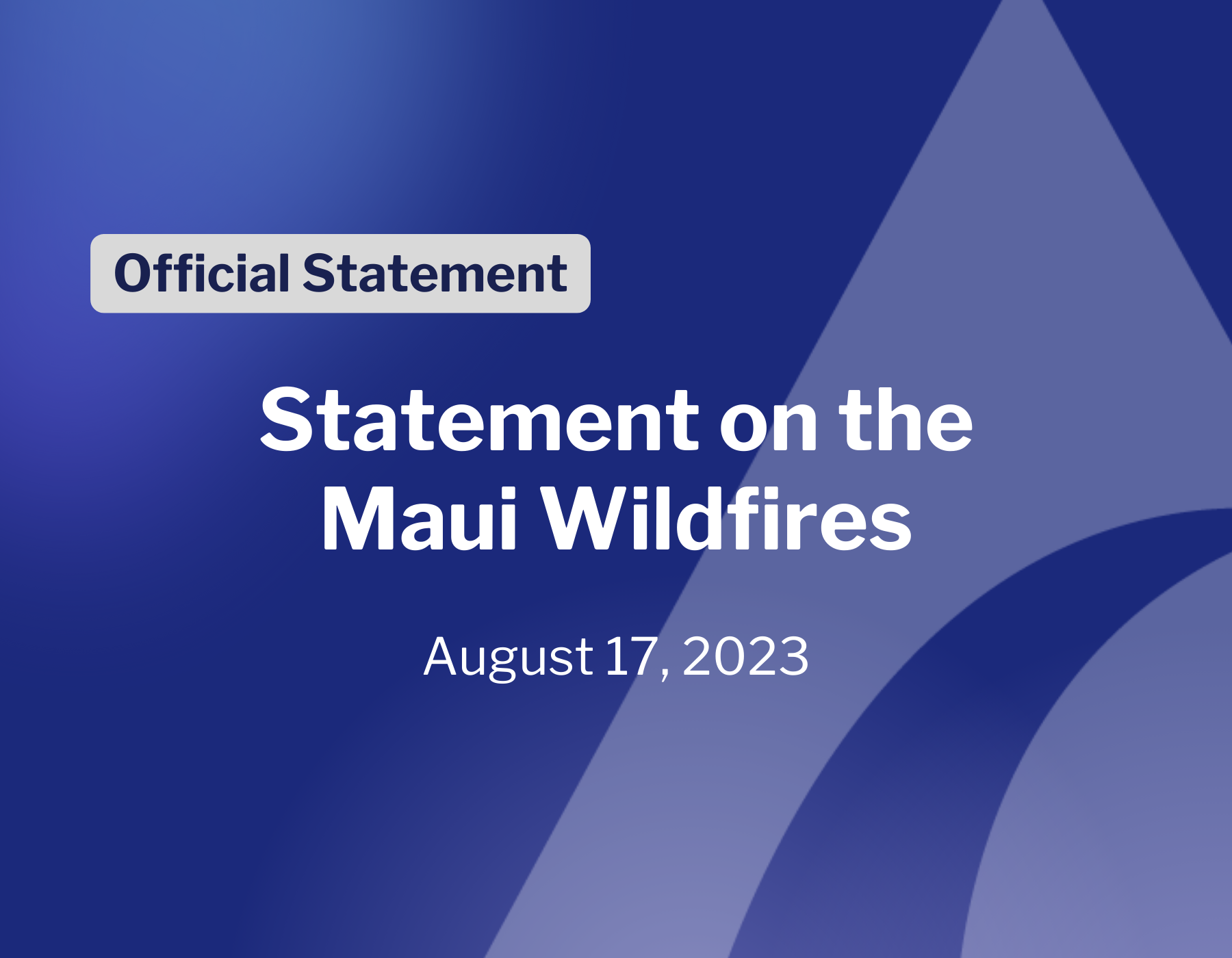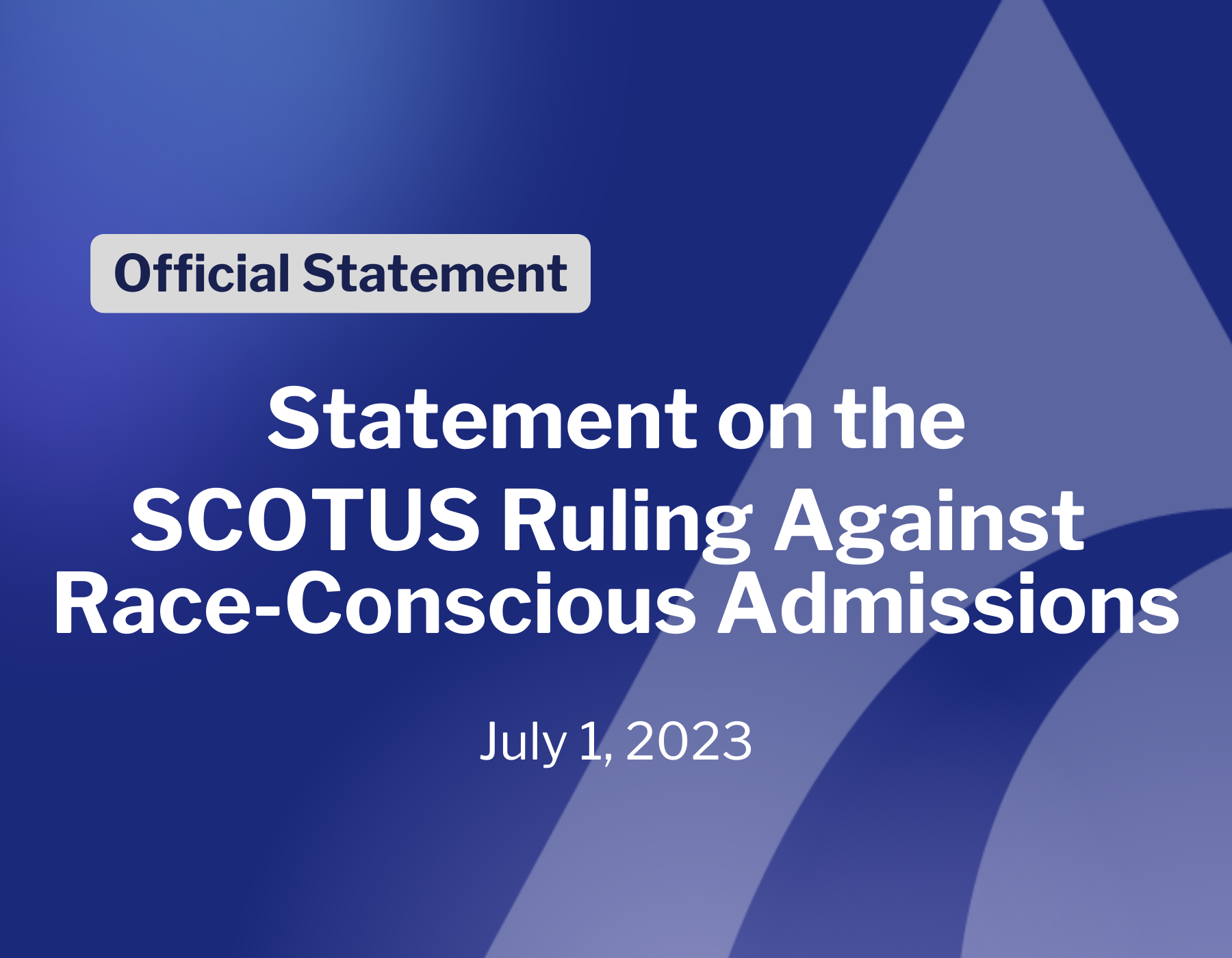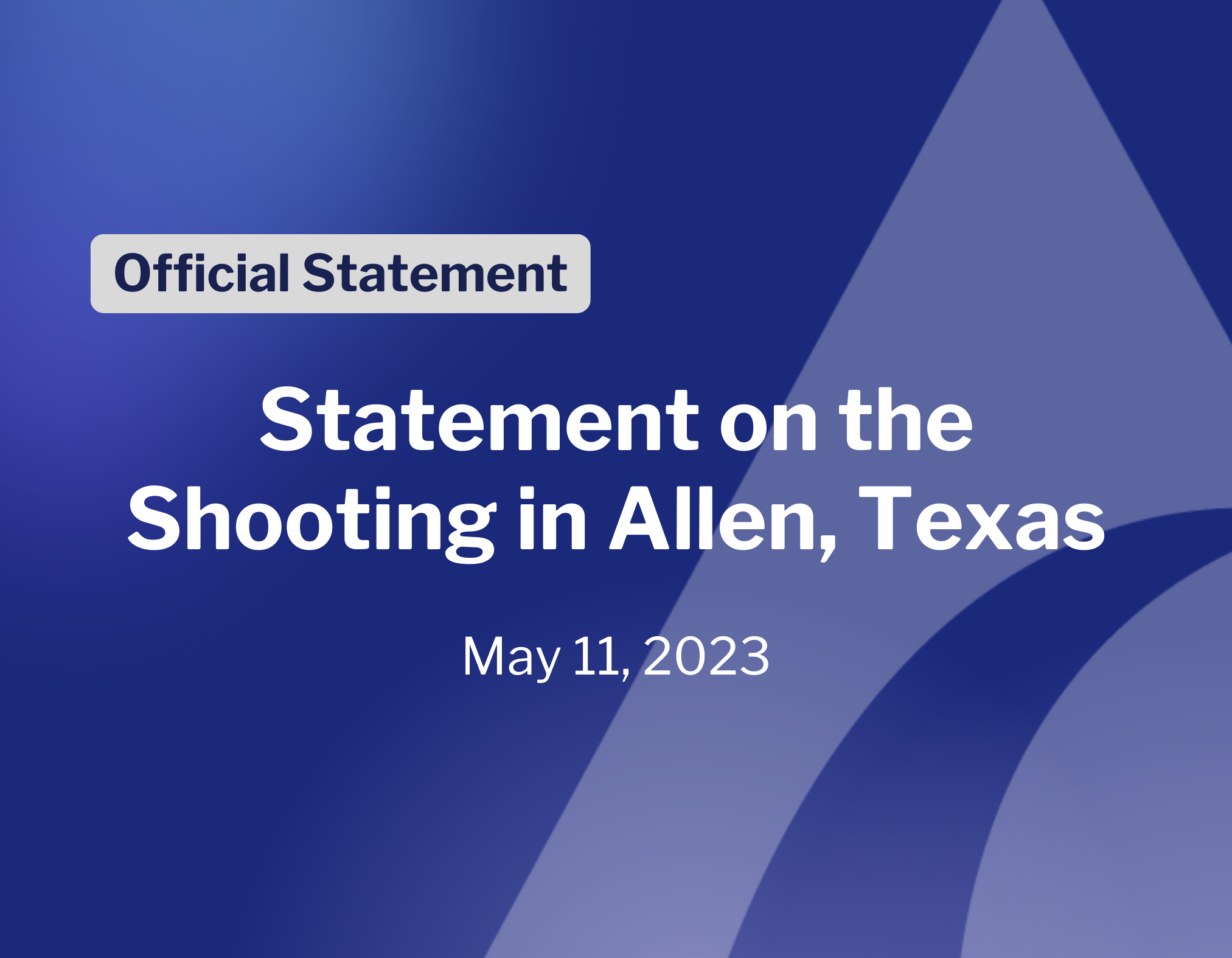Calling for a Humanitarian Truce in Gaza
Since the first attacks on October 7th, 2023, Gaza has been embroiled in a devastating conflict as tensions that have been mounting for many decades have erupted in these most recent tragedies. Thousands of civilians have lost their lives, and countless more have had to flee their homes for fear of further death and destruction. In light of these tragic developments, the United Nations General Assembly called for a “humanitarian truce” in Gaza on October 27th. The vast majority of the delegates chose to adopt the resolution with a 120-14 vote. In the midst of the ongoing military conflict, their resolution emphasizes the need to support and care for the millions who lack access to food, water, medicine, and fuel. The resolution also calls for all parties to honor international humanitarian law, especially with regard to the protection of civilians, humanitarian personnel, and humanitarian facilities, such as hospitals and schools.
We at National APAMSA unequivocally uphold the value of human life everywhere, and we join the U.N. General Assembly in demanding that it be protected at all costs. We firmly assert that civilian lives must not be jeopardized, even in the midst of a military conflict, and we strongly urge for a humanitarian truce to be enacted. We affirm the statement of the Committee of Interns and Residents in emphasizing that as members of the medical profession, we are committed to maintaining the health and safety of every person regardless of background. No civilians on any side of the conflict should have to face the fear of death or have their access to the necessities of life threatened, and we commend the healthcare workers who have been caring for the sick and injured even at the risk of their own lives.
Moreover, we recognize and likewise condemn the ways in which the conflict has led to an increase in racially motivated hate crimes against both Jewish and Muslim people in the United States. As stated in our most recent Official Statement, we stand against all instances of racial hate crimes and violence within our communities. Relevantly, we also reaffirm Resolution 20.002 of our Policy Compendium: that we support and uphold the importance of refugee and migrant health and safety, both within and outside our national borders.
We are aware of the recent developments in which Israel and Hamas agreed to a four-day truce starting on November 23rd, 2023. However, the truce would entail an exchange of only a limited number of hostages; it does not itself indicate a definitive end to this present conflict.
We therefore maintain our call for a ceasefire to be established and for unrestricted humanitarian aid to be provided to all who have been affected by the conflict, and we urge our community members to join us in contacting local government representatives and legislators to raise their own voices to this end. Please reach out to your local regional director or the National APAMSA Mental Health Director at mentalhealth@apamsa.org. You can find our list of additional supportive resources here.
If you have questions about the statement, please reach out to the Rapid Response Director at rapidresponse@apamsa.org
Statement on the Illinois Stabbing
On October 14th, 2023, 6-year-old Wadea Al-Fayoume was killed and his mother, Hanaan Shahin, was critically wounded in a horrific stabbing by their landlord, allegedly because they were Muslim. Having moved to Illinois only 2 years ago, the Muslim Palestinian family has been devastated by what is now being investigated as a potential hate crime, as the authorities believe this attack was likely connected to the Israel-Hamas conflict that erupted just a week prior.
The ongoing conflict in the Middle East has shaken the world with the tragedies that have arisen from it. There are no winners in war, and we at National APAMSA grieve for all those who have lost so much and suffered so greatly from it. Indeed, increased reports of hate and violent threats against both Muslim and Jewish communities across the country have been pouring forth in just the past few days. We lament how the eruption of this conflict has sparked such hate and violence, and we condemn all acts of racially targeted attacks.
We strive to protect and uphold the health and safety of all our communities, and we absolutely do not tolerate any threats to those values. As news coverage continues to focus on this most pressing issue, we urge those in political offices and the media to proceed with caution so as not to inflame already mounting tensions that may exacerbate threats of violence. APAMSA condemns all forms of racism, and we look to our country’s leaders to do the same.
We offer our deepest condolences to Al-Fayoume’s family and all those in the Muslim and Arab American communities, and we hope Shahin will recover soon.
For questions about the statement, please contact Eric Kim at rapidresponse@apamsa.org. For local support, please contact the Region 6 Directors at region6@apamsa.org.
Expanding Access to Healthcare 101 with Lee Che Leong
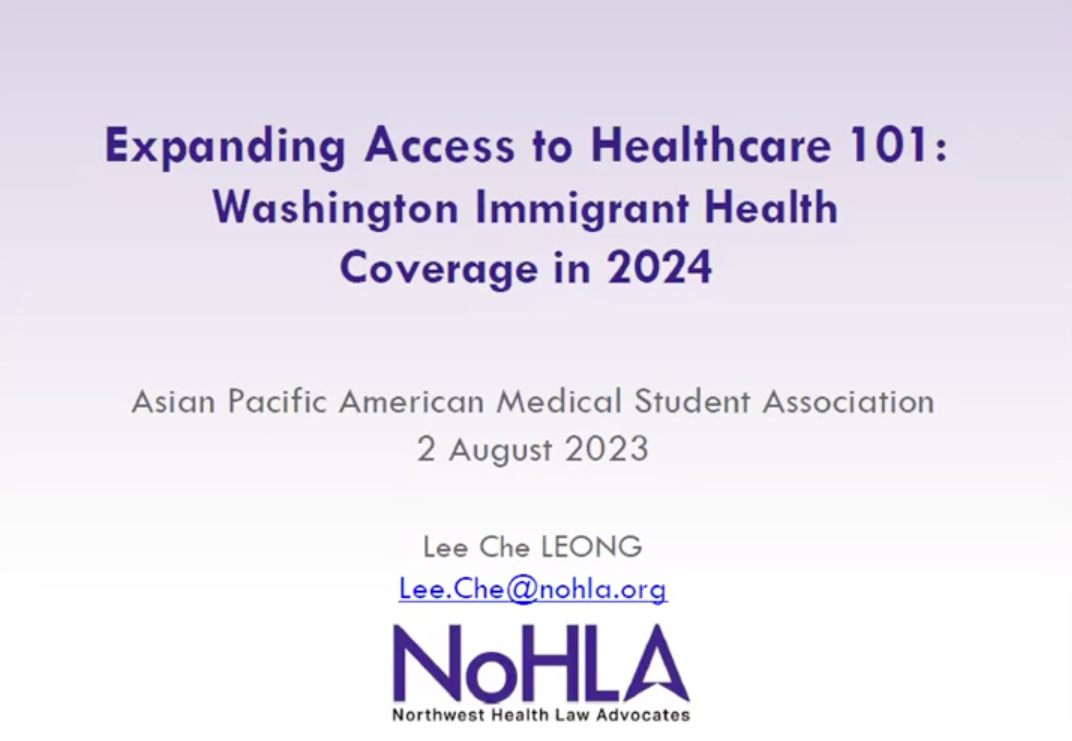
The Health Policy Speaker Event featured Lee Che Leong, a Senior Policy Analyst from Northwest Health Law Advocates (NoHLA), a healthcare advocacy group located in the Pacific Northwest. In her talk, Lee Che talked about NoHLA’s work in successfully advocating for universal access to health insurance plans in Washington state, irrespective of immigration status. In addition, Lee Che provided guidance to APAMSA members on how to be involved in advocacy as future physicians.
For any follow up questions, please email healthpolicy@apamsa.org
Statement on the Treatment of Jaahnavi Kandula
On January 23rd of 2023, 23-year-old Jaahnavi Kandula was struck and killed by a police officer’s vehicle that was responding to a “priority one” call. A Master’s student of Northeastern University’s Seattle campus, Kandula had immigrated from India, where her single mother was an elementary school teacher and had taken on financial debt to support the move. Yet the tragedy of her story has only grown as recently released footage revealed the manner in which vice president of the Seattle Police Officers Guild, Dan Auderer, had responded to the incident. In it, Auderer is heard laughing while discussing Kandula’s death, finally quipping, “Just write a check… yeah, $11,000. She was 26 anyway, she had limited value.”
It is difficult to describe the horror and anger that naturally arise upon listening to Auderer’s callous behavior. Not merely in virtue of Kandula’s talent and potential, but as a human being deserving of dignity and respect, she deserves far more than to be laughed at so flippantly. We at National APAMSA are horrified with Auderer’s actions, and we call upon the Office of Police Accountability to conduct its investigation with the utmost seriousness and urgency. We demand that justice be brought to the situation for the sake of Kandula’s memory and her family. We cannot stand idly by and allow the dehumanization and diminishment of members of our AANHPI community go unpunished.
We offer our sincerest condolences to Kandula’s loved ones, who had to suffer from not only the loss of someone so dear to them, but also the insult and disrespect from those that are ostensibly there to protect and serve our communities. We urge other AANHPI communities to join us in our condemnation of these disturbing developments. We also urge organizations associated with or otherwise involved in this nation’s police force to fight for robust and just accountability practices for police officers throughout our communities.
If you have any questions or concerns about the statement, please contact Eric Kim at rapidresponse@apamsa.org
Statement on the Jacksonville Shooting
On Saturday, August 26th, Jacksonville, Florida bore witness to the latest of violent hate crimes when a white man killed three Black people before killing himself. The police have since established that the attack was a racially motivated hate crime; the shooter’s guns were marked with swastikas, and his laptop contained “more than 20 pages of racist writings.” This most recent tragedy now joins the long procession of racially-motivated gun-related attacks that have occurred over the past few years. We at National APAMSA lament the fact that we have had to respond with such frequency to these horrifying and racist acts. We grieve for the victims and their loved ones, and we reiterate in no uncertain terms our staunch opposition to the lack of gun control in this country.
The prevalence of firearms not only poses a public health threat to our communities, but it also serves as a means for racism to manifest in the most heartbreaking of ways. We urge our legislators to reckon with how pressing the need is for gun reform, and we encourage all those who were affected to reach out for support as needed.
For questions about the statement, please contact Eric Kim at rapidresponse@apamsa.org. For local support, please contact the Region 4 Directors at region4@apamsa.org.
Statement on the Maui Wildfires
The past week has been marked by heart-wrenching devastation as wildfires tore through Lahaina, Maui. Beginning on August 8th, 2023, the Hawaiian island has been ablaze with what has now become the deadliest US wildfire in over 100 years—claiming over 100 lives, consuming over 2,000 acres of land, and costing almost $6 billion in damages. Although much of the fire has been contained, it has not been entirely extinguished, and it is unclear how many victims have yet to be accounted for.
National APAMSA grieves with and stands in support of our Maui community, especially the Native Hawaiian community. Along with all that has been lost, we recognize that the Native Hawaiian community has lost a sacred place with tremendous cultural significance and ties to their ancestors. The Native Hawaiian community has always drawn from their culture and history to do meaningful work in health, medical education, and diversity, so the losses are felt deeply from the APAMSA community. Our thoughts and prayers are with the Maui and Native Hawaiian community and our local APAMSA chapter in Hawai’i.
We urge you to join us in supporting the people of Maui and the Native Hawaiian community. The need is both for the short-term and long-term future, as the Maui community begins to recover and rebuild. The best ways to support their endeavors are through monetary donations, of which community organizations and families are able to use funds as it best fits their needs.
The Hawaii Community Foundation Maui Strong Fund
A nonprofit community organization that has established a fund to support Maui communities affected by recent fires, including response and recovery efforts.
You can donate here. (The website may be busy, in which case you can check their Instagram account for updates.)
Hui No Ke Ola Pono
A nonprofit community-based health care center, which is one of five Native Hawaiian Health Care Systems. They are currently serving the community and providing supplies directly to those affected. They are requesting monetary donations as well as supplies to help families who are affected.
Other
A complete list of individual family funds can be found here.
UH Maui College
This fund is specific to students and their families directly impacted by the fires, whether they have lost homes, businesses, or jobs. As the new school year starts, you can help keep students, faculty, staff, and their families resilient during this unprecedented emergency.
Mahalo for your support!
For questions or concerns about this statement, please reach out to Eric Kim at rapidresponse@apamsa.org, Akila Ally at diversity@apamsa.org, Piueti Maka at nhpidirector@apams.org, or the Region 7 Directors at region7@apamsa.org
Response to the SCOTUS Ruling Against Race-Conscious Admissions
The morning of Thursday, June 29th, 2023 was marked by a groundbreaking turn of legal events as the Supreme Court of the United States (SCOTUS) ruled on two historic cases: Students for Fair Admissions v. President and Fellows of Harvard College and Students for Fair Admissions v. University of North Carolina. With their ruling, SCOTUS banned the consideration of race in college admissions, thereby overturning decades of precedent supporting affirmative action policies. Indeed, the 1978 case Regents of University of California v. Bakke, the 2003 case Grutter v. Bollinger, and most recently, the 2016 case Fisher v. University of Texas at Austin all concluded that the consideration of race in college admissions is constitutional under the Equal Protection Clause, especially in light of the need to create a diverse educational environment. Regardless, SCOTUS has now ruled to the contrary: Race-conscious admissions in fact violate the Equal Protection Clause and must be prohibited. While students will still be able to identify themselves in their applications to speak about experiences of discrimination and hardship, the spirit of the ruling is nevertheless deeply problematic.
APAMSA has long promoted diversity in higher education. Our policy compendium includes Resolution 40.002 (Improving Campus Diversity Initiatives) and Resolution 40.003 (Defending Race-Conscious Admissions in Undergraduate Medical Education). More directly to the point, we joined the amicus brief written by the Association of American Medical Colleges (AAMC) to support the protection of affirmative action policies in these very trials on which SCOTUS has now ruled.
We unambiguously and unequivocally oppose this SCOTUS ruling. It is a misguided attempt at promoting meritocracy in the midst of immense and complex historical and social inequities, such that to pursue meritocracy while ignoring those inequities is to aim horribly astray. Furthermore, we believe that our patients are best served by a diverse community of talented medical professionals, such that to limit that diversity from entering higher education is to endanger our patients.
The AANHPI community specifically should also strongly oppose this ruling. As Supreme Court Justice Sonia Sotomayer eloquently articulates in her dissent, the AANHPI community needs race-conscious admissions to be fully respected. Asian Americans are victims of historical and current discrimination and stereotyping that require a diverse society, as promoted by affirmative action policies, to be overcome. Moreover, the AANHPI community is not a monolith, and it needs to be seen in its disaggregated and distinct diversity if its members are to be fully seen.
Ultimately, we call for SCOTUS to reconsider its decision and restore affirmative action to this nation’s higher education system. We also urge all other educational, pre-professional, and professional organizations to join us in fighting against this attack on racial equity and diversity.
For questions or concerns about this statement, please reach out to Eric Kim at rapidresponse@apamsa.org
Statement on the Shooting in Allen, Texas
Saturday, May 6th, 2023 was marked by yet another horrific tragedy, as nine people lost their lives and seven more were injured in a shopping mall in Allen, Texas. Among those killed are four members of the AANHPI community—a Korean family of three, leaving a son orphaned, and an Indian woman. The police are currently investigating the extent to which the attack was motivated by far-right extremist ideologies. Regardless, we at APAMSA lament all of the lives that were devastated by this past weekend’s events—not merely those within the AANHPI community.
In every instance, we staunchly oppose gun violence (Resolution 40.006) and demand stricter gun control. Indeed, we believe strong gun regulations are essential to ensuring all people’s safety, as shown by the string of shootings that have preceded this latest one over the past year, from Laguna Woods and Buffalo to Monterey Park and Half Moon Bay. We call for legislators to fight with unprecedented urgency to protect those innocent lives who might be saved through gun reform. We cannot allow any more injustices to terrorize those whom we hold dear.
We continue to offer our support to all of our local chapters and members, especially in Texas, and we encourage you to reach out with any specific ways we can be of service. Please also consult our list of mental health resources if you are interested in learning more.
If you are interested in exploring additional ways APAMSA can lend our support during these trying times, please reach out to Karen Qi at mentalhealth@apamsa.org, and the Region 9 Directors at region9@apamsa.org.
For questions or concerns about this statement, please reach out to Eric Kim at rapidresponse@apamsa.org
Statement on the Legal Status of Mifepristone
In early April, Texas federal judge Matthew Kacsmaryk ruled in favor of Alliance for Hippocratic Medicine’s lawsuit against the FDA approval of mifepristone, a prescription medication used for abortion. Mifepristone is currently the first of a two-step process, alongside misoprostol, for performing a first-trimester medical abortion. This ruling has several potentially significant ramifications. First, it comes as the next legal attack against patient access to abortion services following the overturning of Roe v. Wade, to which APAMSA has previously responded. Second, the current standard of practice for medical abortions in the United States requires both mifepristone and misoprostol because misoprostol alone, while relatively safe and effective, is still less effective than combination therapy. Third, some worry that these legal challenges warn of future dangers to the legal status and accessibility of misoprostol as well.
On Friday, April 21st, the Supreme Court announced that it would delay the restrictions against mifepristone, which will remain accessible until additional legal debate runs its course. The lawsuit is expected to make its way through the Fifth Circuit Court of Appeals and eventually back to the Supreme Court.
APAMSA supports the Supreme Court’s decision to protect mifepristone access. As stated in multiple official statements and, most recently, in our official policy compendium as Resolution 10.010, we uphold the importance of protecting access to abortion services. We therefore urge the Supreme Court to maintain its commitment to keeping safe, effective abortion services widely available. We stand with all other healthcare organizations that are also committed to speaking against these threats to the health and welfare of our AANHPI communities and beyond.
For questions or concerns about this statement, please reach out to Eric Kim at rapidresponse@apamsa.org
Statement on the Monterey Park and Half Moon Bay Shootings
It is with heavy hearts and great mourning that we at National APAMSA now take a step back from the festivities of the Lunar New Year to respond to the tragedy that occurred the same weekend. On Saturday, January 21st, 2023, a mass shooting took place in Monterey Park, CA that killed 11 victims and injured 9 others. Just two days afterward, Half Moon Bay, CA likewise suffered a mass shooting that took the lives of at least 7 more people. Many of those who passed away were members of the AANHPI community.
We lament the horrors that unfolded at a time meant for celebrations and rejoicing with loved ones; we cannot know how unspeakably painful it must be for those who lost their loved ones that same evening. Our hearts and deepest sympathies go out to all those in our AANHPI communities who must now endure such unbearable sorrows.
We respond to the Monterey Park and Half Moon Bay shootings with the recognition that they are tragically not the only ones that have disproportionately affected racial minorities generally and the AANHPI community specifically. The past year has seen far too many violent crimes, from New York City and Brooklyn to Laguna Woods and Buffalo. And earlier this month, an Indiana University student was stabbed for “being Chinese”. It is with great frustration and heartbreak that we must reiterate our condemnation of the senseless violence that endangers our communities. We continue to offer our support to all of our local chapters and members, especially in California and Indiana, and we encourage you to reach out with any specific ways we can be of service. Please also consult our list of mental health resources if you are interested in learning more.
For questions or concerns about this statement, please reach out to Eric rapidresponse@apamsa.org
If you are interested in exploring additional ways APAMSA can lend our support during these trying times, please reach out to Nathan at mentalhealth@apamsa.org, the Region 5 Directors at region5@apamsa.org, the Region 7 Directors at region7@apamsa.org, and the Region 8 Directors at region8@apamsa.org.
